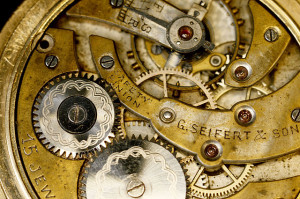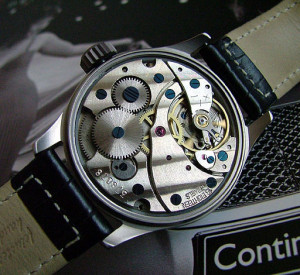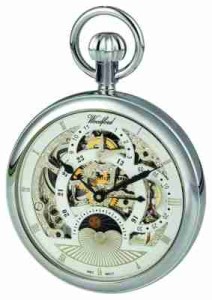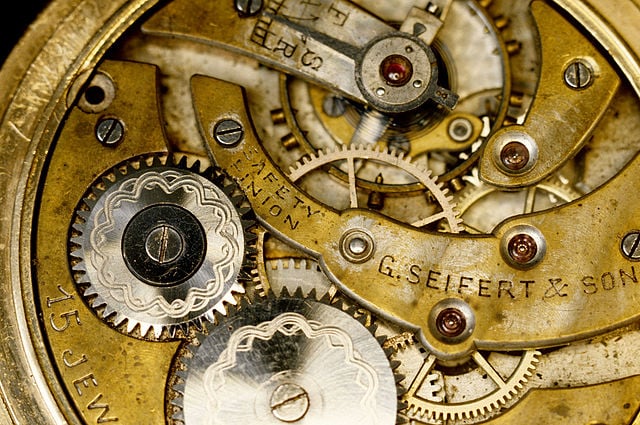I’m sure you know that mechanical watches are the most expensive and desirable watches on the market. But do you know why they are so expensive and so desirable? Do you know what makes a mechanical watch so much different and so much better than a cheaper quartz watch?
If you don’t know what a mechanical watch is, then today you’re in luck! We’re going to explore the world of mechanical watches and the benefits they bring. So, read on and find out what a mechanical watches are and why you should buy one.
The History of Mechanical Watches

For most of the history of watches, the only watches available were mechanical watches. The first mechanical watches reportedly appeared in Italy, Germany and France around 1492. But the principle behind modern mechanical watches only appeared centuries later, after Galileo Galilei created the first pendulum clock designs. The principle behind these watches dominated the watchmaking industry until the 1970’s.
The manufacturing mechanical watches was turned into an artform by the Swiss over the coming centuries. Geneva ended up becoming the spiritual home of watchmaking, with Geneva watchmakers inventing new ways to make mechanical watches more beautiful, more accurate and more functional.
Innovations like the chronograph, the self-winding watch and the date-calendar watch made watches more useful for day to day use. These improvements were the result of hard work by skilled watchmakers and many of them happened before a lot of modern technology was available. The cost and skill of making these watches was always very high, which is why mechanical watches were and still are more expensive.
In the late 1960’s one big improvement came about which made watches much less expensive to make and sell. This improvement was known as the quartz crisis or quartz revolution (depending on whether you are from Switzerland or Japan!) Quartz vastly reduced the cost of manufacturing watches and helped drastically reduce the cost for customers.
The vast majority of watches made today are quartz watches. They are more readily available because they are cheaper to mass-produce and sell, but there is still a huge market for mechanical watches.
But, what exactly ARE mechanical watches?
What Are Mechanical Watches

Mechanical watches are watches which use a mechanical movement to measure time, rather than an electronic movement – like quartz. You’d be surprised just how difficult mechanical watches are to manufacture compared to quartz watches.
To understand why they are so much more difficult to manufacture than quartz watches, you need to understand how quartz watches work.
In the middle of a quartz movement you have a tiny crystal of, you guessed it, quartz. Quartz is one of the most common minerals on earth, it’s in sand and many rocks. But the reason why it is so useful for watches is that it is piezoelectric – which means that if you pass electricity through quartz it vibrates at an exact frequency. The frequency it vibrates at is 32768 times every second. All that needs to happen is that the electronic circuit needs to count how many times it vibrates and then generate an electrical pulse to move the time forward each second.
Now, I appreciate that it still sounds fairly complicated – but when you compare it to a mechanical watch, it is unbelievably simple.
Mechanical watches work in a different way, a much more complicated way. Inside a mechanical watch you have energy stored in a wound spring which unwinds and sends its energy into a number of gears which turns the energy into movement. You then have the escapement and balance wheel which keep time in a similar way to the vibration of quartz.
Now, I know my explanation isn’t exactly a complete one… but it at least explains the principle.
As you can imagine, it takes a lot more work to put a mechanical watch together properly than it does to put a quartz watch together.
There are different kinds of mechanical movements available. There are manual movements, which you wind up yourself to create the energy in the spring. These watches will hold power after you wind them anywhere from a few hours to a few days.
Then there are automatic “self winding” movements which are wound by the movement of the wearers wrist. With these watches, every time you move your wrist the rotator will spin and automatically wind the mainspring. As long as you wear these watches regularly, they will never need to be wound.
One thing which I need to explain is that an automatic “self-winding” watch is not the same as a solar/kinetic watch. Solar and kinetic watches are not mechanical, but quartz powered, but the battery is charged by the sun/your movement. So, if you’re looking for a self-winding mechanical watch, then you need to make sure it is an automatic watch, not a solar watch or a kinetic watch.
Should You Buy a Mechanical Watch?

The answer to this question depends on why you want a watch. Do you want something functional or do you want something beautiful and unique?
In terms of accuracy, a quartz watch is always going to be more accurate than a mechanical watch. Quartz vibrates at a precise frequency, so it is easier for it to regulate the time. Quartz watches are likely to deviate by about 1 second every day, watches certified by the COSC lose less than 25 seconds per year.
On the other hand mechanical watches deviate by about three seconds per day. Which means they are almost always going to be less accurate than your average quartz watch. There have been many innovations to the mechanical watch over the years and, while you can never say never, they are probably as accurate as they are ever going to be.
Mechanical watches also require a lot more maintenance than quartz watches do. They need to be carefully looked after (and I’m sure you will look after them at the price they cost!) They often need cleaning and repairing over the years to make sure that they continue to work properly.
You might think that I’m going to say that you shouldn’t buy mechanical watches. But I’m certainly not going to. Watches are more htan just If you prefer beauty and craftsmanship over precision, then mechanical watches are certainly for you.
It’s almost impossible to match the beauty of a mechanical watch in a quartz watch. Mechanical watches are unique and perfectly crafted. They are some of the most unbelievable pieces of mechanical art that you can find anywhere on the planet.
Each mechanical watch is an incredible piece of artwork. The way they work is fascinating – all of the little pieces inside the watch work together to tell the time without ever needing a battery. The amount of work which goes into creating one is unbelievable and is a great nod to the hard work of watchmakers over the centuries. You can even get modern mechanical pocketwatches from Woodford as well as incredible mechanical watches from Rotary and Junghans.
So, whether you should buy a mechanical watch or a quartz watch is completely down to what you want from your watch. If you want something functional, then quartz is for you. If you want a unique watch which pays homage to watchmakers of years gone by or you want something beautiful – you need a mechanical watch.





